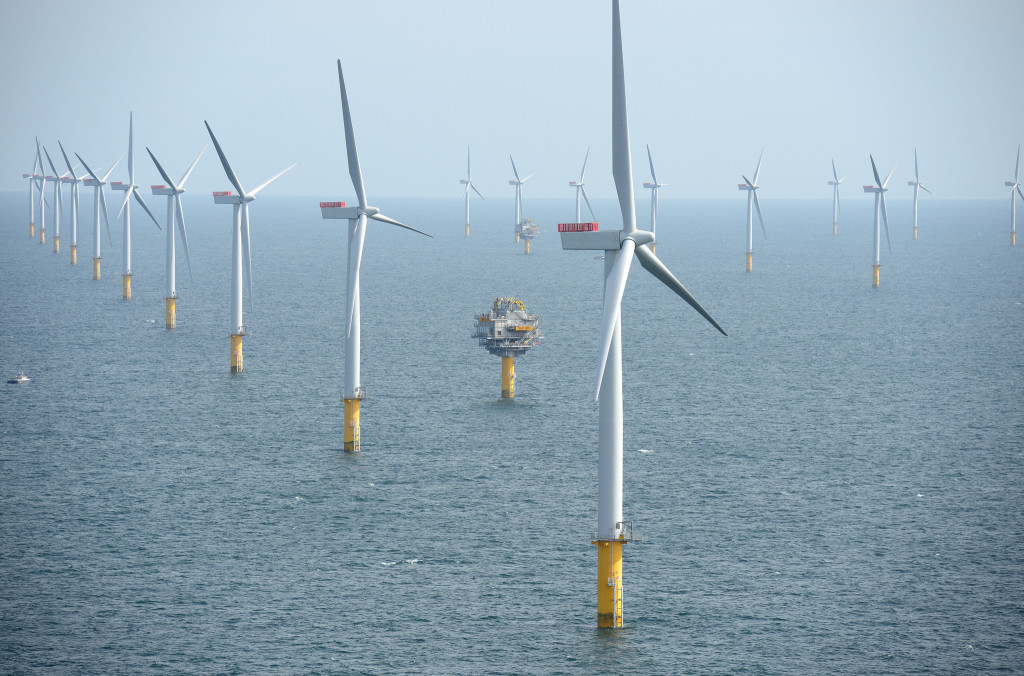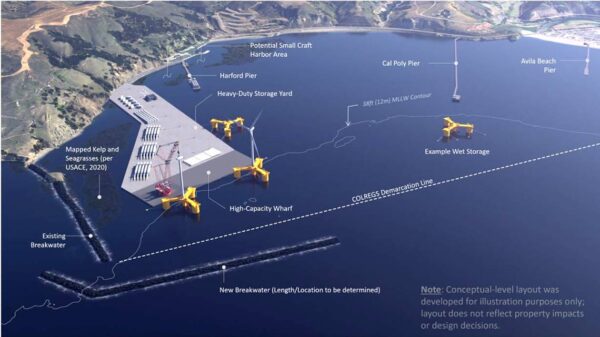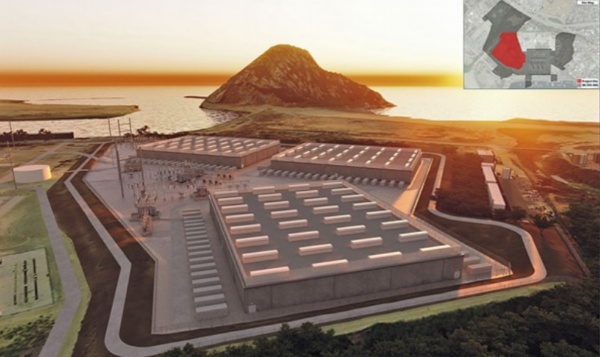Will Trump’s win end Morro Bay offshore wind energy projects?
November 14, 2024

By KAREN VELIE
President-elect Donald Trump has vowed to end offshore wind energy projects his first day in office, a promise opponents of the proposed Morro Bay offshore wind farms hope he fulfills.
Trump ran on lowering housing and energy costs. During his campaign speeches, he described offshore wind energy as “the most expensive energy there is.” He noted environmental concerns such as whale and bird deaths.
“We are going to make sure that that ends on day one,” Trump said during a campaign speech. “I’m going to write it out in an executive order. It’s going to end on day one.”
In Dec. 2022, an auction for three offshore wind energy sites located off the coast near Morro Bay netted over $400 million to the federal government. The plan is to have the wind turbines float in the ocean more than 20 miles off the coast, with the electricity sent ashore via cables along the ocean floor. The goal is to have the windmills in the water by 2030.
While the majority of San Luis Obispo County residents initially supported the “green energy” project, sentiments changed as information regarding plans to industrialize Port San Luis near Avila Beach and portions of the Morro Bay waterfront spread through the community.
Industrialization of the proposed Central Coast ports will have significant impacts on the local economy and its ocean-dependent ecosystems. The support systems on land will include massive piers, and could require new breakwaters and dredging.
The offshore windmills themselves are 1,000 feet tall, taller than the Golden Gate Bridge, and their platforms are the size of a baseball field.

Site rendering of example of integration at Port San Luis. Breakwater may or may not be required.
The plan to transform Port San Luis into an industrial port to support proposed offshore wind farms moved forward in July with the assistance of the Port San Luis Harbor District in a 3-2 vote, though most of the discussions were held in closed session out of public view.
However, one of the pro-industrialization candidates did not run for reelection. The public then voted against pro-industrialization candidate SLO City Manager Katie Lichtig and for local fisherman Richard Scangarell, who opposes plans for industrialization.
In Morro Bay, residents largely supported a measure requiring voter approval for changes to some zoning on the waterfront. Vistra Energy, the company behind a proposed 24 acre battery storage facility on the waterfront, decided to seek state approval while bypassing the city’s consideration shortly before the November election.

Morro Bay’s proposed battery storage facility
Even so, a large amount of the funding for the offshore windmill projects and onshore support infrastructure is slated to be provided through the Inflation Reduction Act, which includes $369 billion in subsidies for renewable energy.
“The Inflation Reduction Act is anticipated to provide the opportunity to realize material benefits to Vistra with respect to its renewables and energy storage projects, as well as provide strong price support via the nuclear production tax credit for its nuclear facilities, including those acquired through the Energy Harbor transaction,” Vistra said in a first quarter 2024 press release.
With Trump in office, it is anticipated he will ask Congress to reduce or eliminate tax credits for offshore wind provided through the Inflation Reduction Act. Without the subsidies and tax credits, the future of offshore wind energy and battery storage facilities in San Luis Obispo County appear bleak.
“REACT Alliance, a local offshore wind opposition organization, is very supportive of the incoming administration’s opposition to offshore wind and hopes that the Trump Administration will get rid of it on day one as the president has pledged,” said Saro Rizzo, vice president of REACT Alliance. “It will be the best thing for the Central Coast’s environment and its ratepayers.”
Because we believe the public needs the facts, the truth, CalCoastNews has not put up a paywall because it limits readership. However, we are seeking qualification as a paper of record, which will allow us to publish public notices, this requires 5,000 paid subscribers.
Your subscription will help us to continue investigating and reporting the news.
Support CalCoastNews, subscribe today, click here.






The comments below represent the opinion of the writer and do not represent the views or policies of CalCoastNews.com. Please address the Policies, events and arguments, not the person. Constructive debate is good; mockery, taunting, and name calling is not. Comment Guidelines